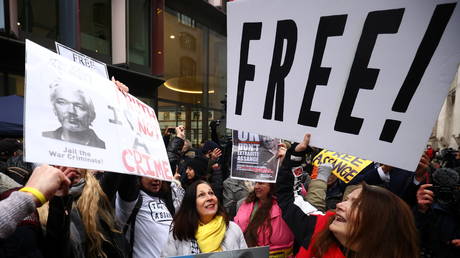
The conditions faced by prisoners in the United States’ incarceration system was the key factor in a judge’s decision not to extradite Julian Assange to face espionage charges.
In a stunning ruling announced at the Old Bailey courthouse in London on Monday, Judge Vanessa Baraitser found that extradition to an American jail would be oppressive to the WikiLeaks founder’s mental health.
After spending the vast majority of her ruling outlining the reasons why Assange should be extradited, Baraitser shocked onlookers by ordering the 49-year-old’s discharge.
“Faced with the conditions of near total isolation without the protective factors which limited his risk at HMP [Her Majesty’s Prisonson] Belmarsh, I am satisfied the procedures described by the US will not prevent Mr Assange from finding a way to commit suicide and for this reason I have decided extradition would be oppressive by reason of mental harm and I order his discharge,” she said.
The decision sparked joyous scenes among WikiLeaks supporters who had gathered outside the court for the ruling. Speaking outside the Old Bailey, John Rees, who is part of the official campaign to stop Assange’s extradition, heralded Baraitser’s ruling as an “incredible judgement.”
“95 percent of this judge’s remarks supported the prosecution offence. She said there’s no public interest defence, there’s no journalistic defence, there’s no political opinion defence,” Rees explained.
“The one fact that swayed her into refusing the extradition was that the US prison system is so brutal that it will increase the risk of suicide, and she wasn’t willing to put him into an oppressive prison system.”
The academic and activist labelled it a damning indictment of the US prison system:
Despite the jubilation among Assange supporters, freedom-of-information advocates raised concerns about the wider implications of Judge Baraitser’s ruling.
“It is very clear that on substantive grounds this country would have handed Mr Assange over to the United States to face trial there,” Rebecca Vincent, of Reporters Without Borders, said outside the courthouse.
“We continue to believe that Mr Assange was targeted for his contributions to journalism. And until the underlying issues here addressed other journalists, sources and publishers remain at risk,” she added.
Like this story? Share it with a friend!




